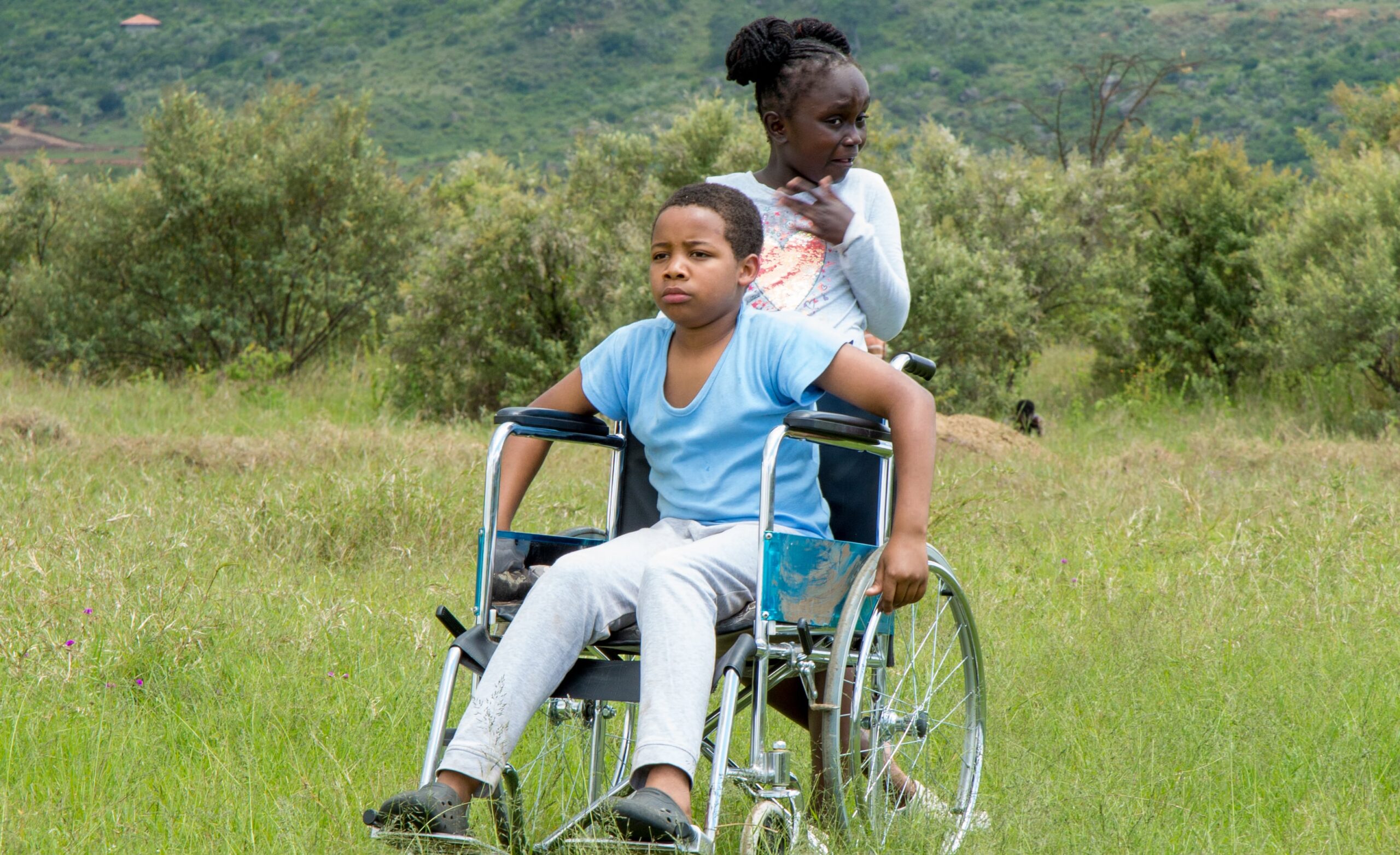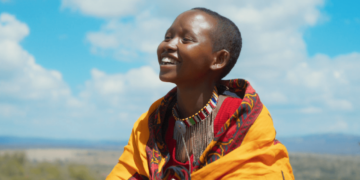Deep from the heart of Kenya emerges a tear-jerking tale of friendship, adventure, and courage. These simple virtues seem to have been forgotten by modern cinema, and by extension, the modern world. Safari is a very short film that comes in at just eighty-two minutes and is as wonderfully frivolous as its title suggests.
Directed by Bill Afwani who’s also the film’s writer alongside Njue Kevin (18 Hours), Safari centres around a young timid boy by the name of, no bullshit here, Safari (Victor Fadhili). He’s the paraplegic son of a fearful mother who keeps him locked in the house and takes care of both him and her shamba. We can’t really blame an overprotective mother in any context, despite feeling a little sorry for the boy. It’s a benevolent crime to lock up a young invalid. So our hearts break for each party when a cheeky young girl by the name of Kiki, played with unbelievable gusto by Abilasha Muthoni, infiltrates his contained bubble and earnestly endears herself to Safari. The performance is unbelievable only due to her young age. I’ve seen great child performances before but this has an adult quality to it. It’s not charming in a reckless childish way, it’s studied and considered and very nuanced; professional. I loved her in this.
Safari and Kiki go on a hero’s journey in which they abscond the grill-like clutches of their folks in a bid to pursue fun and adventure and most importantly, commune with nature. So they embrace freedom and Kiki rolls Safari through prairies over which they collect grasshoppers, study them, then place them under captivity. The motif of freedom is wisely shown to be a double edged sword. Which it very much is.
Safari’s mother, Wakesho, played by Janet Mbunga, has a farm worker by the name of Chege (Douglas Mwigai). Chege is a naive do-gooder. He’s a simple man in the most wonderful way. He works hard, avoids stepping on any toes, looks after the little guy and is only trying to get a leg up in life wherever he can. All this makes him the perfect victim for a band of ivory hunters who want to make a killing in a Kenyan national park. They need a driver they think is dumb enough not to notice their cargo of tusks, and this man is just simple enough for the job. Safari not only looks to talk on the matter of freedom but on the pesky subject of poaching as well.
Of course the poacher is the main villain; menacing, fedora-wearing, and caucasian. The big bad has a vague Eastern European accent I can’t quite place. Mehul Savani plays this character who’s completely unnamed and all that a Google search reports back is that he plays the ‘foreigner’. Poaching is inextricably linked to the white man. The white man is also inextricably linked to the unprincipled exploitation of African resources. They never got around to naming this character and it appears they never got around to fully constructing him either. He’s a stock villain because the movie itself is full of stock characters that work just fine. The aforementioned farm worker, Chege, is a stereotype who’s played truthfully and so we don’t doubt his actions. The two children are but children; underdeveloped adults – stock. Even their parents are just, parents. But we take them at face value because their natural goodness is congruent with the camera’s eye. Lots of shots of our beautiful plains and animals. The issue with the caucasian ivory-hunter, or smuggler, is not that he’s a cliché stock character like the others, who work, but that he is incongruent with the rest of the movie, and requires an explanation of sorts. He’s the only character in this who would have benefitted from a little extra depth.
In the end good triumphs, and the kids return to their families safe and sound. It’s not so much a spoiler as it is a fulfilled promise from a film of this buoyant and innocent texture. Safari is, plainly, a feel-good movie. Even for a man with no particular liking for children, I felt warmed after this blissful eighty-two minutes.
Highly recommended.
Safari is available to stream on Netflix.
Enjoyed this article?
To receive the latest updates from Sinema Focus directly to your inbox, subscribe now.










